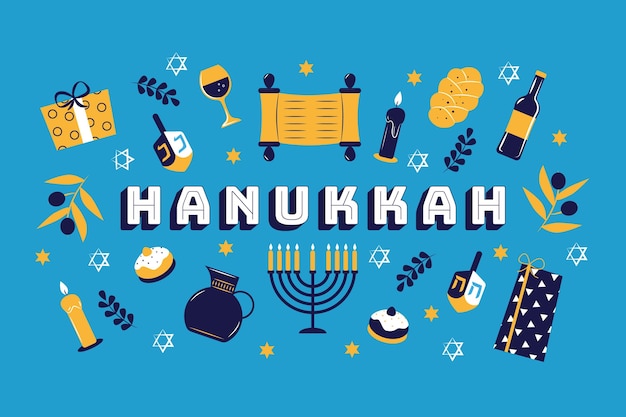Exploring Fascinating Trivia about Hanukkah

Hanukkah is often referred to as the Festival of Lights.
The holiday commemorates the rededication of the Second Temple in Jerusalem after the Maccabean Revolt.
The holiday lasts for eight days and nights.
The date of Hanukkah varies each year because it is based on the Hebrew calendar.
The holiday begins on the 25th of Kislev.
One candle is lit on the first night of Hanukkah, and an additional candle is added each subsequent night until all eight candles are lit.
A special nine-branched candelabrum, called a menorah, is used to light the candles.
The center candle on the menorah, known as the shamash, is used to light the other candles.
Traditional Hanukkah foods include potato latkes (pancakes), jelly-filled doughnuts called sufganiyot, and cheese.
A spinning top called a dreidel is often played with during Hanukkah.
The dreidel has four Hebrew letters on each side, which are an acronym for the phrase A great miracle happened there.
Hanukkah is not mentioned in the Torah, but it is referenced in the Talmud.
While not a major religious holiday, Hanukkah has gained popularity in Western society due to its proximity to Christmas.
Hanukkah typically falls in December, but it can occur in late November.
It is customary to give and receive gifts during Hanukkah.
A traditional gift given during Hanukkah is gelt, which are small chocolate coins wrapped in gold foil.
Many families exchange gifts over the eight nights of Hanukkah.
Exploring Fascinating Trivia about Hanukkah part 2
Hanukkah is a time of joy and celebration, and families often come together to light the menorah, play games, and share meals.
The story of Hanukkah is centered around a small jar of oil that miraculously lasted for eight days in the rededicated temple.
The Maccabees, who led the revolt against their Greek-Syrian oppressors, are considered heroes in Jewish history.
Hanukkah is a time to remember and celebrate the resilience and determination of the Jewish people.
Hanukkah is one of the most widely observed Jewish holidays in the world.
It is customary to say special prayers, known as Hallel, during Hanukkah.
Some communities host public menorah lightings to spread the message of Hanukkah to a wider audience.
In some Orthodox Jewish communities, women refrain from doing housework while the Hanukkah candles are burning.
The Talmudic rabbis debated whether Hanukkah should be celebrated in the temple by lighting the menorah or by reciting special prayers.
While the candles are lit, traditional songs and blessings are recited.
Some families have a tradition of giving a small amount of money, known as Hanukkah gelt, to children each night of the holiday.
Gift-giving during Hanukkah is not a traditional Jewish practice, but it has become more common in recent years due to cultural influences.
Many Jewish homes display a menorah in a prominent place during Hanukkah.
Lighting the menorah is often accompanied by singing and music.
Each night, the candles are lit from left to right.
The menorah is often placed in a window to symbolize the miracle of Hanukkah.
Some families have the tradition of giving back to the community during Hanukkah by participating in charitable acts.
Hanukkah is a time to reflect on the importance of religious freedom and the persecution faced by the Jewish people throughout history.
The traditional colors associated with Hanukkah are blue and white.
In Israel, Hanukkah is a national holiday and is celebrated with various events and activities.
Hanukkah is a time to gather with loved ones and celebrate the miracle of the oil.
Fried foods are a traditional part of Hanukkah because they symbolize the miracle of the oil.
The lighting of the menorah symbolizes the victory of light over darkness.
Hanukkah is a time for families to connect with their Jewish identity and pass down traditions to future generations.
Some families have the tradition of dedicating each night of Hanukkah to a different value or theme.
In 2013, Hanukkah and Thanksgiving overlapped, resulting in the creation of the term Thanksgivukkah.
Hanukkah is a time to celebrate miracles and embrace the power of faith.
The story of Hanukkah reminds us that even in the face of adversity, hope and perseverance can lead to victory.

